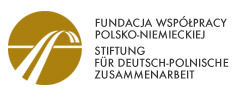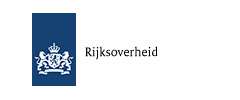Women must get their fair share of climate finance
At the end of April, a committee of countries chosen to work out the details of a U.N.-backed Green Climate Fund holds its first meeting in Mexico, to discuss how to get the fund up and running.
29.04.2011 |Nina Somera, Gendercc.net
Much has been said on these fundamental issues which pit developing against developed countries. But further questions still need to be asked, particularly regarding women: What are the benefits of the Green Climate Fund to women? How to incorporate a gender perspective in decision making about the fund? How can the most vulnerable women access resources to build the resilience of their communities? How canthe fund compensate women whoíve lost their few assets due to climate change?
Around the world, a large proportion of women still lack access to land, even as they contribute at least 50 percent of food production. The U.N. Food and Agricultural Organization (FAO) estimates they could produce as much as 80 to 90 percent of food in some regions, including sub-Saharan Africa and Southeast Asia.
At the same time, the U.N. Economic and Social Commission for AsiaPacific (UNESCAP) says women and girls are 14 times more likely to be affected by disasters than men and boys. Following the 2004 Asian tsunami, for example, only 189 out of 676 survivors in the Indonesian village of Aceh Besar were women.
The global financial and food crises also have pushed more women into informal jobs, including sex work, which usually lack any form of state protection even for the most basic rights such as health. Such work is rarely counted in a countryís gross domestic product (GDP).
The impacts of these inequities are likely to worsen with dwindling natural resources and a changing climate. The growing frequency of droughts and floods has left small farmers in deeper debt, forcing them to migrate to cities where the scramble for resources and opportunities is more intense.
Sea-level rise threatens to drive residents of coastal communities in Bangladesh and the Pacific from their homes. And as natural disasters seem to be occurring more frequently, a rising number of affected families are sliding below the poverty line.
Click here to read the whole article
Related News
Meet the Winners of the Gender Just Climate Solutions Award at COP24
On the 70th anniversary of the Universal Declaration of Human Rights, we awarded Gender Just Climate Solutions Winners at the climate negotiations in Katowice, Poland
11.12.2018
Invitation: Gender Just Climate Solutions Award 2018
10 December, COP24 Katowice
04.12.2018
Getting to the Future We Want
4-7 November, Brussels: European Environmental Bureauís (EEB) Annual Conference
12.11.2018
GoodFood4All
WECF and partners all over Europe start GoodFood4All Campaign
06.11.2018
#Ruralwomen: join our Women2030 campaign!
15.10.2018







































